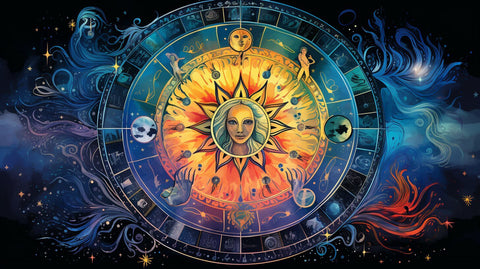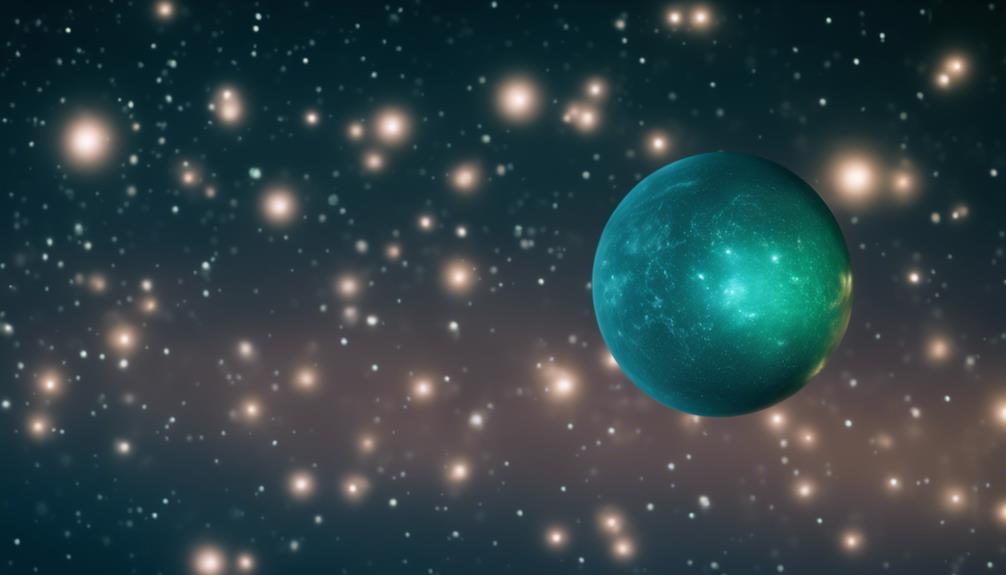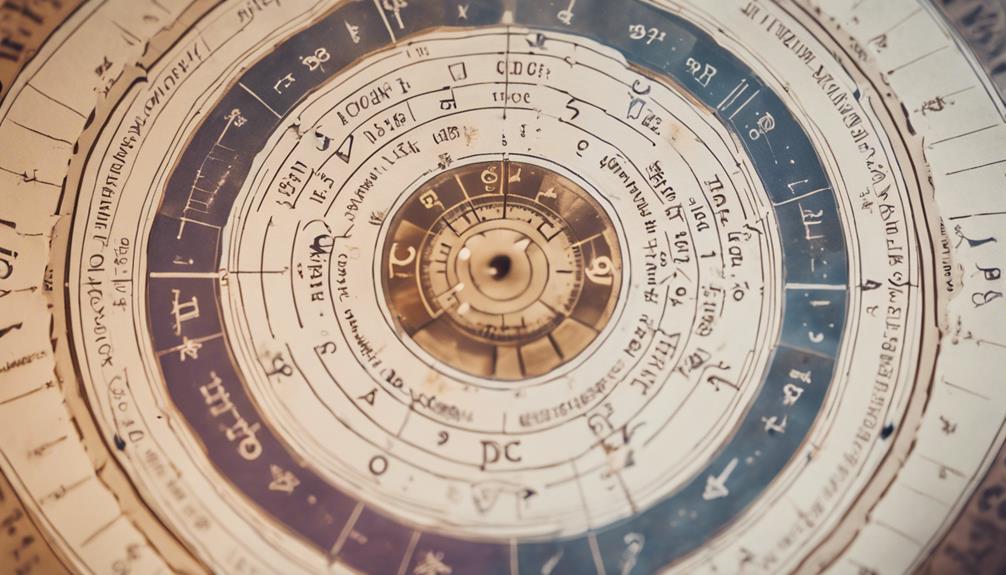Why Is My Sun Sign Different In Vedic Astrology

Have you ever looked up your sun sign in Western astrology only to find that it doesn't match the one in Vedic astrology? A lot of people find themselves in a similar situation and wonder why there is a discrepancy. In this section, we will explore the reasons behind the differences in sun signs between Vedic astrology and Western astrology.
It's important to first understand that Vedic astrology and Western astrology approach the concept of sun signs differently. While Western astrology is based on the position of the sun in relation to the earth, Vedic astrology takes into account the position of the sun in relation to the fixed stars. This fundamental difference in approach can lead to variations in determining sun signs.
Understanding Vedic Astrology and Sun Sign Variations
Vedic astrology, also known as Jyotish, is an ancient Indian system of astrology that predates Western astrology. While both systems have similarities, there are fundamental differences in the way they approach astrology and determine sun signs.
In Western astrology, the sun sign is determined by the position of the sun at the time of birth. However, in Vedic astrology, the sun sign is determined by the position of the sun at the time of the vernal equinox, which typically falls around March 21st.
Another key difference is that Vedic astrology takes into account the precession of the equinoxes. This is the gradual shift in the orientation of the Earth's axis, which causes the position of the stars and constellations to change over time.
As a result, Vedic astrology uses a sidereal zodiac, which is based on the actual position of the constellations in the sky. In contrast, Western astrology uses a tropical zodiac, which is based on the position of the sun relative to the Earth's seasons.
These differences in approach can lead to variations in sun signs between the two systems, with individuals often finding their sun sign to be different in Vedic astrology compared to Western astrology.
Calculating Sun Signs in Vedic Astrology
In Vedic astrology, the sun sign is determined by the position of the sun at the time of the vernal equinox, also known as the first point of Aries.
This is calculated using a system called the sidereal zodiac, which takes into account the precession of the equinoxes and the actual position of the constellations in the sky.
To calculate your Vedic sun sign, you will need to know your date, time, and place of birth. This information is used to calculate your birth chart, which is then used to determine your sun sign and other astrological factors.
Comparing Sun Sign Variations
The differences in sun signs between Vedic and Western astrology can lead to confusion and discrepancies for individuals who are familiar with one system but not the other. It's important to understand the fundamental principles and differences between the two systems in order to accurately interpret and understand astrological charts and readings.
While some may argue that one system is more accurate or valid than the other, it's ultimately up to the individual to determine which system resonates with them on a personal and spiritual level.
Cosmic Influences and Zodiac Sign Inconsistencies
The differences between sun signs in Vedic astrology and Western astrology can be attributed to various cosmic influences and astrological factors. While Western astrology follows the tropical zodiac system, which is based on the position of the sun at the time of the Spring Equinox, Vedic astrology follows the sidereal zodiac system, which takes into account the precession of the equinoxes.
The precession of the equinoxes refers to the gradual shift in the rotation axis of the Earth, which causes the position of the stars and constellations to change over time. As a result, the zodiac constellations in Vedic astrology and Western astrology differ, leading to discrepancies in determining sun signs.
| Western Astrology | Vedic Astrology |
|---|---|
| Based on the position of the Sun at the time of the Spring Equinox | Based on the position of the fixed stars and the movement of the Earth |
| Follows the tropical zodiac system | Follows the sidereal zodiac system |
| Divides the zodiac into 12 equal parts | Divides the zodiac into 27 equal parts or nakshatras |
Additionally, the astrological calculations used in Western astrology and Vedic astrology differ in their approach to determining sun signs. While Western astrology uses the tropical zodiac system, which divides the zodiac into 12 equal parts based on the seasons, Vedic astrology uses the sidereal zodiac system, which divides the zodiac into 27 equal parts or nakshatras based on the fixed stars.
"The zodiac constellations play a significant role in shaping our astrological profile, and understanding the differences between Vedic astrology and Western astrology can help us gain deeper insight into our personality traits and life path."
How the Cosmic Influences Affect Sun Signs
While the sun sign variation between Vedic astrology and Western astrology may seem confusing, it is important to note that both systems have their unique strengths and insight to offer. For instance, Vedic astrology places a strong emphasis on the moon, which is believed to influence an individual's emotions and inner self.
By contrast, Western astrology places greater emphasis on the sun, which is believed to influence one's outer self and ego. However, both systems acknowledge the importance of the sun and moon in shaping one's astrological profile.
In conclusion, the differences in sun signs between Vedic astrology and Western astrology can be attributed to various cosmic influences and astrological factors, including the precession of the equinoxes and the zodiac constellations. By understanding these differences, we can gain a deeper appreciation for the insights and wisdom that each system has to offer.
Analyzing the Sun Sign Discrepancy in Vedic Astrology
Let's take a closer look at some specific examples to illustrate the sun sign discrepancy in Vedic astrology. One common scenario is when someone born under the Western zodiac sign of Scorpio finds their Vedic sun sign to be Libra. This can be confusing for individuals who identify strongly with their Western sun sign and may not understand the reasons for the variation.
The principles of Vedic astrology offer insights into why this happens. Unlike Western astrology, which is based on the tropical zodiac system, Vedic astrology uses the sidereal zodiac system. This means that Vedic astrologers base their calculations on the position of the stars, as opposed to the position of the sun.
The sidereal zodiac system takes into account the precession of the equinoxes, which causes a gradual shift in the position of the stars over time. As a result, the Vedic zodiac signs are slightly different from their Western counterparts, and the sun may be located in a different constellation at the time of birth.
| Western Zodiac Sign | Vedic Zodiac Sign |
|---|---|
| Scorpio (October 23 - November 21) | Libra (October 16 - November 15) |
Another example of sun sign discrepancy in Vedic astrology is when someone born under the Western zodiac sign of Aries finds their Vedic sun sign to be Pisces. This occurs because of the difference in the way the Vedic and Western astrology systems calculate the position of the sun at the time of birth.
In Western astrology, the position of the sun is calculated based on the time of year and the date of birth. In contrast, Vedic astrology takes into account the position of the sun relative to the fixed stars in the sky, which can lead to variations in the sun sign.
| Western Zodiac Sign | Vedic Zodiac Sign |
|---|---|
| Aries (March 21 - April 19) | Pisces (March 14 - April 13) |
It's important to note that while the sun sign discrepancy can be confusing, it doesn't diminish the validity or accuracy of Vedic astrology. In fact, many people find that the insights gained from Vedic astrology offer a unique and valuable perspective on their life and personality.
FAQ - Common Questions About Sun Sign Differences in Vedic Astrology
If you've recently discovered your sun sign in Vedic astrology and found it to be different from your Western astrology sign, you may have some questions. Here are some frequently asked questions about sun sign differences in Vedic astrology:
Why does Vedic astrology use different calculations for determining sun signs?
Vedic astrology uses a system called the sidereal zodiac, which is based on the actual positions of the constellations in the sky. This system takes into account the precession of the equinoxes, which means that the position of the sun at the time of your birth is slightly different than it was 2000 years ago when Western astrology was developed. This causes the calculations for determining sun signs to vary between the two systems.
How do I calculate my Vedic sun sign?
To calculate your Vedic sun sign, you will need to provide your birth date, time, and location to a Vedic astrologer or use an online calculator that uses the sidereal zodiac. The Vedic sun sign is based on the position of the sun in relation to the sidereal zodiac at the time of your birth.
What is the significance of sun sign differences in understanding my astrological profile?
While your sun sign is just one aspect of your astrological profile, understanding the differences between your Western and Vedic sun signs can provide insights into how your personality and life path may differ in relation to these two systems. Additionally, exploring different astrological traditions can provide a deeper understanding and appreciation for the complexities of astrology.
Can my Vedic sun sign be more accurate than my Western sun sign?
It's important to remember that both Western and Vedic astrology have their own unique strengths and limitations. While your Vedic sun sign may provide a more accurate representation of your personality and life path in relation to the sidereal zodiac, it's important to consider all aspects of your astrological profile and not rely solely on your sun sign to understand yourself and your future.
Is it possible to have the same sun sign in both Western and Vedic astrology?
Yes, it is possible to have the same sun sign in both Western and Vedic astrology. This would occur if your birth date falls within the same time period in both systems, regardless of any differences in the calculations used.
🔴 Need Clarity on your Situation?



